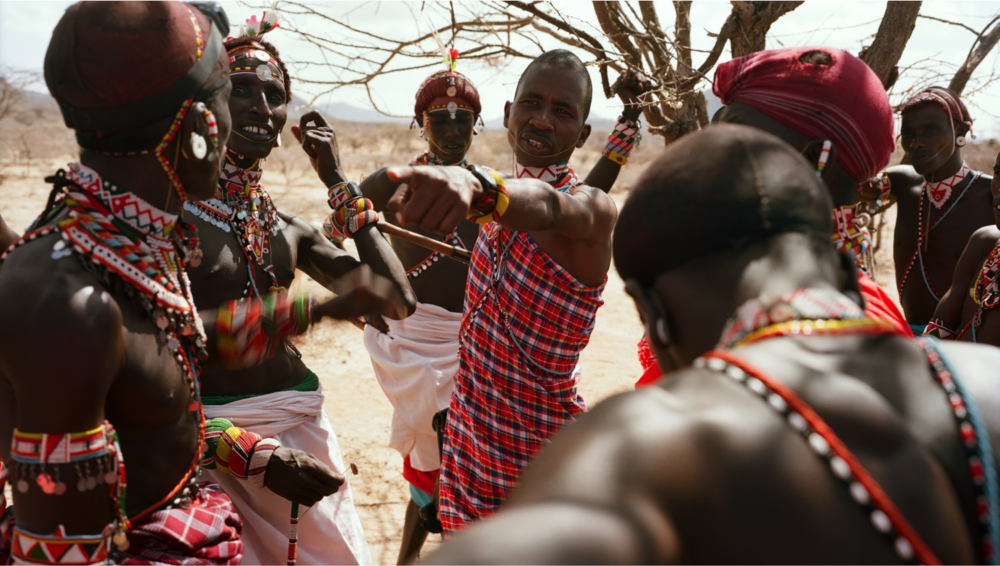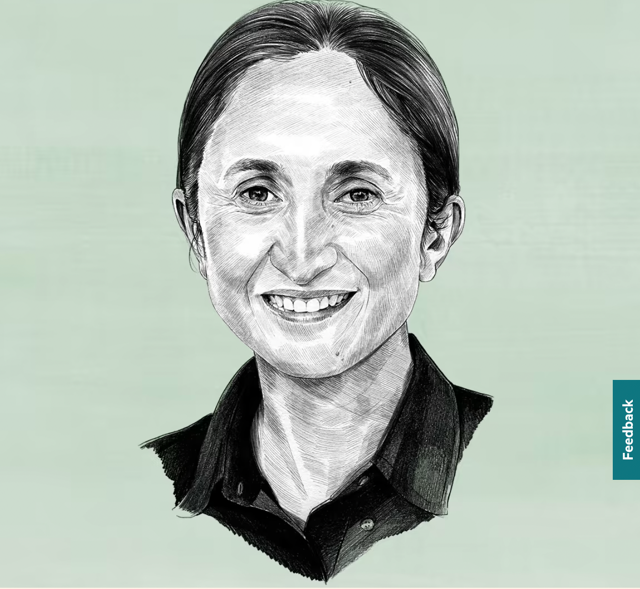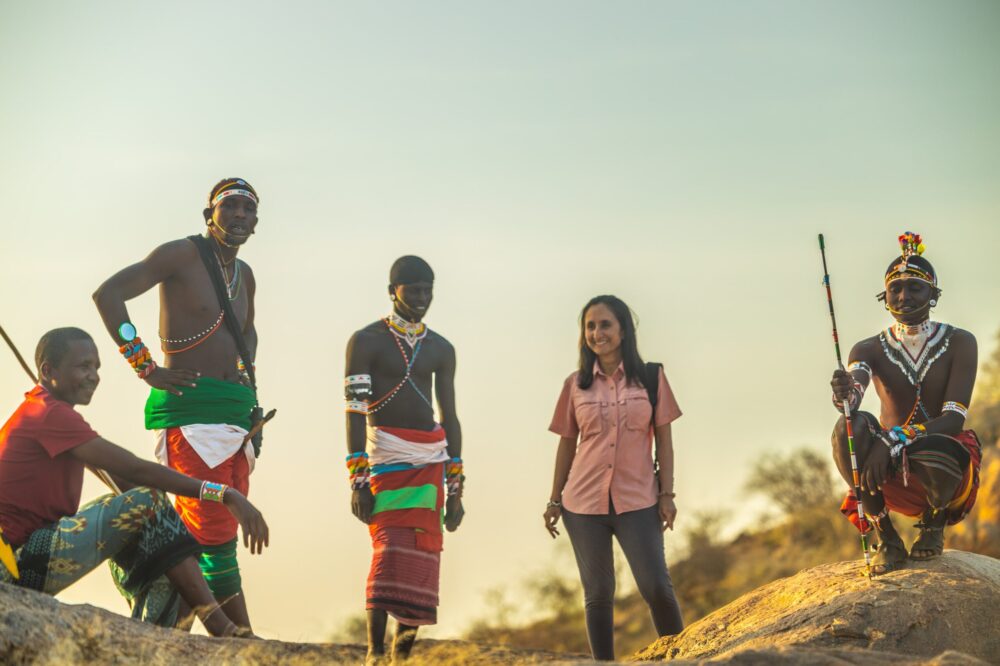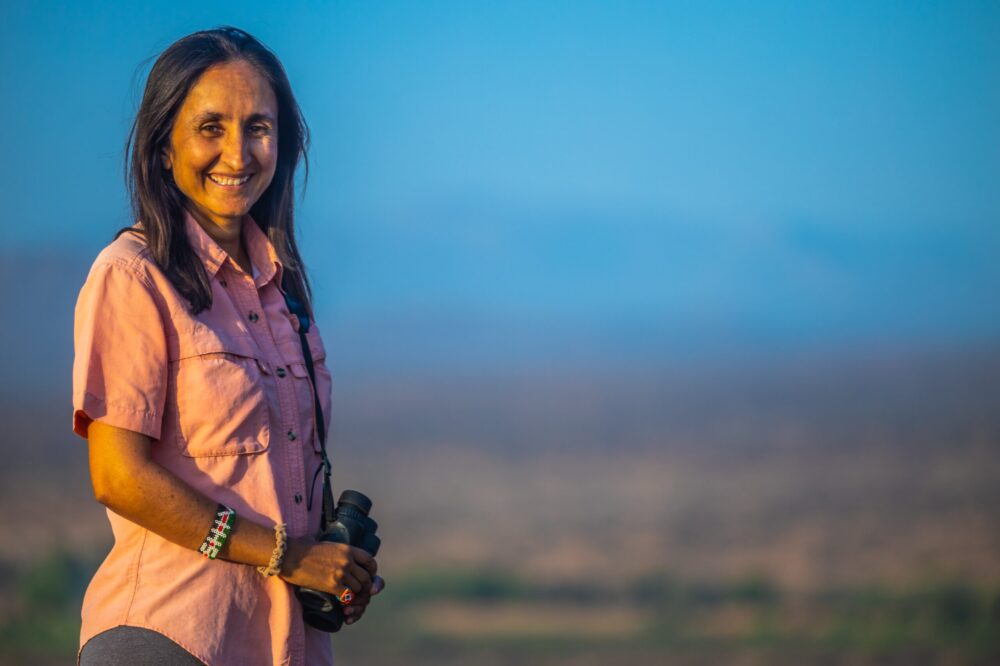By Vanessa Serrao
Editor Elaina Kimes
Published February 23, 2017
SAMBURU, KENYA – The Samburu tribe of central Kenya has lived with wildlife for centuries, though not always peacefully.
Dependent on livestock for meat, milk, and income, the Samburu have protected their herds from lions with brutal force.
However, as African lion numbers have plummeted—only about 20,000 animals remain in the wild—one warrior is leading the fight to save the big cats.
In 2010, one Samburu warrior, Jeneria Lekilelei, founded Warrior Watch to encourage Samburu men to conserve lions. Since then, the local lion population has risen from 11 animals to 50 today. Warrior Watch is part of Ewaso Lions, a group fighting to ensure a future for Kenya’s lion population. By promoting co-existence between people and wildlife, Ewaso Lions uses scientific research and community-based outreach programs to formulate strategies for long-term lion conservation.
National Geographic talked to Lekilelei, whose work is funded by National Geographic, to learn how the Samburu are harnessing the same skills used in the past to hunt lions to protect them.
What inspired you to start Warrior Watch?
When I was a boy, I thought I’d be killing lions when I grew up. My father was a warrior when he was young. In the 1950s, there used to be so many lion prides in this area. I met [National Geographic Explorer] Shivani Bhalla, who showed me the declining lion population, and it inspired me to start Warrior Watch.
What are the duties of the Warrior Watch?
We brought a class of warriors who used to kill lions and made them the ambassadors of lions. They spread the word to change their attitudes toward conservation. One of their activities is to go out early in the morning, before the livestock are released for grazing, and [use their tracking skills to see] where the lions are. They then bring that message back to the community so that the [people and their animals] can avoid those areas.
How do you track the lions?
We often look for hyena tracks, since they depend on lions for food. The lions might have killed something and the hyenas will go there. We look in the sky for vultures, who will give you a sign where the lions have been. We search for primates such as baboons, monkeys, and herbivores that are making a lot of noise; if they make a lot of noise you know a predator is most likely there.
How did you change people’s perception of lions?
My community members, in the beginning, hated it. Lions killed our livestock, people didn’t want them in this area. If we know the lions are in the area, we go back and spread the awareness within the community so that they’re aware, they’re more vigilant, they look over their livestock properly, and they know exactly where the lions are so that they can avoid that area. I explained to them that if we lose a cow, we can’t get it back, and if we kill a lion, we lose two animals.
Today, people are proud to support my work in lion conservation. Even if they’re not involved in our project, people still call me on phone and say, ‘We found the lions tracks here, where do you think those lions are? They have preyed on our livestock today.’ They have stopped killing the lions when they see them.
What do you now love about lions?
They’re social like humans, they live together, they share everything together. We see these lions from the time they’re born, as little cubs, we see them grow up and we grow attached to them. We give individual lions unique names. When a lioness gives birth, you will see her walking with her cubs, roaring and introducing them to the rest of the pride. The pride comes and licks the cubs so they know each other.
Does it make you proud to see a lion grow up and go off on their own?
I really enjoy seeing them grow to adulthood, I feel that I’ve played a role in saving them. If we hadn’t protected them, they would have been killed, poisoned, speared, or shot. When I haven’t seen them in a long time I get scared, I worry that they could have been killed. I feel so relieved and so happy when I see them come back. Any time I lose a lion, it’s like losing a member of my family. If there are no lions in Samburu, then there is no more life.





